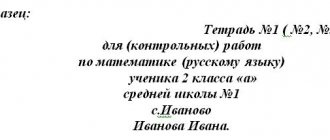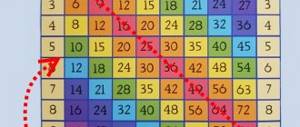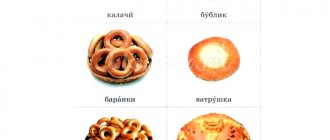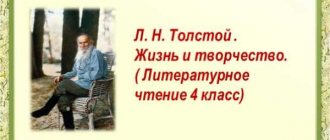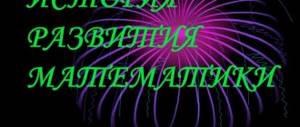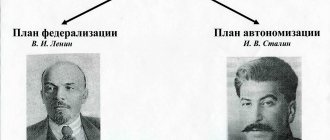Topics of projects on ORKSE
Project topics on the foundations of religious cultures and secular ethics:
“Religion” as a word and concept in the history of culture Anti-religious policy of the Soviet state. Atheism The Bible is the main source of doctrine in Christianity. The Bible and modern science. The Bible as a monument of world culture. Buddhism Buddhism in the aspect of religion Buddhism and Jainism: a comparative analysis. Buddhism as a world religion, the emergence and features of the doctrine. Buddhism on the territory of Russia. Buddhist faith. The most important Catholic orders, their history. Wahhabism as a struggle for the “purity of Islam”: history and modernity. Vegetarianism and religion Faith and religion Old Testament Judaism and Christianity. Interaction problems. Interaction between Catholicism and the Russian Orthodox Church: history and modernity. Interaction of Confucianism, Taoism and Buddhism in Chinese history. Interaction of Islamic trends: history and modernity. Relationships between church and state in the history of Russia. The relationship between religion and science The view of modern science on the biblical history of the Jews. The emergence of Buddhism. The emergence of Christianity. The question of the perception of religion State and church: features of relationships in the history of Russia The XIV Dalai Lama as a religious figure. Taoism and Confucianism. Taoism. Activities of the Vatican in the 20th century. Activities of K.P. Pobedonostsev in the sphere of religious policy in Russia. The activities of the Russian church to strengthen the centralized state in Rus'. Zen (Chan) as a branch of Buddhism. Dialogue of religious and non-religious worldviews about man. Dietrich Bonhoeffer: Protestant theologian and church leader. Theological seminary and academy as centers of education and science in pre-revolutionary Russia.
Project topics on the basics of Orthodox culture
Topics for writing defense industry projects:
The Apostles are disciples of Christ The Bible and the Gospel Conscience and repentance in Orthodoxy The view of modern science on Orthodox religious culture. Internal structure and decoration of the temple. Cultivating obedience in an Orthodox family. Education of chastity in an Orthodox family. Ten Commandments of God Discipline in the Orthodox family Spiritual values of Orthodoxy Woman in Orthodox culture Life feat of Sergius of Radonezh. Life of Jesus Christ Life according to Orthodox commandments Life of St. Seraphim of Sarov. Family life in Orthodoxy Life of the modern Orthodox Church. Life of St. Nicholas the Wonderworker. Mercy in Orthodox culture. The Beatitudes The Commandments of God Jesus Christ and his sermons. Icon How to behave in an Orthodox church. How Christianity came to Rus'. Orthodoxy As I understand Orthodoxy, the calendar year in Orthodoxy. Bells Bell ringing in Rus' Cultural traditions of Orthodoxy Love and sacrifice in Orthodoxy. Monastery The Christian's attitude to nature Defense of the Fatherland in Orthodoxy Love and respect for the Fatherland in Orthodoxy. Museums of Orthodox culture in my city. Museums of Orthodox culture in Russia The image of Christ in art Features of raising children in Orthodoxy Features of Orthodoxy in Russia: history and modernity. Features of Orthodox doctrine and cult The difference between an icon and a painting Feat in Orthodox culture The concept of sin, repentance and retribution in the religious traditions of Orthodoxy. Orthodoxy in the history of Russia Orthodoxy in the historical fate of Russia. Orthodoxy about God's judgment Orthodoxy about hard work as a moral state of man.
Topics of research projects and works on ORKSE
Topics of research projects and works on ORKSE for students in grades 4 and older:
The Gospels: a comparative analysis. Women's cult in the history of world religions. Woman in Islam: history and modernity. Russian legislation on religion and freedom of conscience: history and modernity. Zoroastrianism. Hinduism, origin, evolution, main directions. Hinduism. John Chrysostom and his role in the development of the patristic tradition of the Orthodox Church. Art and world religions. Islam Islam in our country. Islam and its role in the modern world. Islam as a world religion, reasons for its emergence and features of doctrine. Islamic factor in the modern world. The historical fate of Slavic paganism. Historical aspects of the relationship between Islam and Christianity. Historical background of the emergence of Islam and the period of Islamic conquests. The historical significance of the Reformation in the fate of Christianity in Europe. The history of the Catholic Church's struggle against heresies. History of interaction between the Roman Catholic Church and Protestantism. The history of interaction between the Old Believers and the official Orthodox Church in Russia. Missionary activities of the Russian Orthodox Church: history and modernity. History of interaction between Christianity and pagan beliefs in Russia. History of the activities of the Catholic Church in Russia. The history of icon veneration in Christianity and its theological justification. History of Catholic monasticism. The history of the development of Judaism in the light of interaction with other religions. History of the Christian religion History of the Church Judaism Judaism in Russia: history and modernity. Judaism and Christianity. Judaism, features of doctrine and cult. Categories of God, freedom and goodness in the works of L. N. Tolstoy Catholicism Catholicism as one of the directions of Christianity. Catholic philosophy. The Catholic Church and the Inquisition. The conflict between ancient paganism and Christianity. Confucianism. Confucianism: religion or philosophy. The Koran is the main source of the teachings of Islam. The Koran as a monument of world culture. Baptism of Rus' Krishnaism as a direction of Vaishnavism: history and modernity. The cult and practice of Taoism: history and modernity. Ancestor cult. Culture and religion Lamaism. Personality and society in Hinduism. The personality of Francis of Assisi in the history of Catholicism. Lutheran Church Lutheranism and Calvinism as the main directions of Protestantism: history and modernity. M. Luther, J. Calvin, W. Zwingli and T. Münzer as like-minded people and opponents. Magic and shamanism. Magic as an early form of religion Maxim the Greek as a philosopher, theologian and publicist. Manichaeism and its influence on heterodox religious teachings. World religions and their role in the modern world. Missionary activities of the Catholic Church. Mysticism and magic in modern religious cults. Mithraism as a religion and its influence on Christianity. Naturalism, dialectics and mysticism in Taoism. Science and religion on the formation of the canon of books of the New Testament. The moral essence of the doctrine of Christianity. The moral significance of religious and non-religious worldviews. Rituals in the culture of the people. Basic ideas and directions of Buddhism. The main directions of Protestantism (Lutheranism, Calvinism, Anglicanism) and their features. Main directions of religious philosophy. The main religions of the world Features of Buddhism in Russia: history and modernity. Peculiarities of doctrine and cult in Hinduism. Features of national religions. Features of Orthodox doctrine and cult. Features of the development of Christianity in the I-III centuries. Features of the religions of the Ancient World. Features of religious cult in Islam. Features of the Church as a Christian organization. The doctrine of the church in Christianity. Features of esoteric teachings. The attitude of modern society towards religion Officially recognized religions Pope John Paul II as a religious figure. Papacy: history and modernity. Parareligious worldview Patriarch Tikhon on the problem of the relationship between the church and the Soviet state. The reign of Emperor Constantine the Great. His influence on the fate of world Christianity. Polemics between Orthodoxy and Protestantism. Polemics of Christian theology with ancient philosophy. Multi-confessionalism in Russia: history, problems and prospects. The concept and types of freethinking. The concept of religion. Basic components of religion. Orthodoxy Orthodoxy in the historical fate of Russia. Orthodox philosophy. Prerequisites and consequences of the church schism in Rus' in the mid-17th century. Ideas about the origin of the Universe of modern theologians. Theological ideas about the origin and development of life. Adoption of Christianity by Kievan Rus. The problem of interaction between polytheism and monotheism in the history of the world's religions. The problem of the historicity of Jesus Christ in the history of the study of religion. The problem of the origin of man and society in various religious traditions. The problem of religious tolerance in modern society. The problem of death in various religious traditions. The problem of the relationship between church and secular power in the history of Russia. The problem of traditionality and renewal in various religions. Problems of interaction between modern theology and ecology. Problems of life and death in various religions Problems of religion Problems of the sociology of religion. Church and sect. Confessions and denominations. Protestantism Protestantism in Russia: history and modernity. Protestantism: emergence, features of doctrine. Protestant philosophy. Archpriest Alexander Men - religious educator of the 20th century. Manifestations of freethinking in the Middle Ages. Puritanism as a religious movement: history and modernity. Separation of churches 1054. Its historical reasons and prerequisites. Various ideological approaches to the question of the origin of religion, its role in human life and society. Early forms of beliefs and modern religions: common features and differences. Religions of ancient civilizations of America. Religions of the world Religions of Russia Religious studies as an independent branch of knowledge. Religious faith and science: the problem of interaction. Religious education Religious content of the Crusades. The religiosity of the works of F.M. Dostoevsky Religious beliefs of pre-class society. Religious views of the Slavs. Religious pictures of the world. Religious roots of the Arab-Israeli confrontation. Religious individual rights in the Russian Empire in the 19th – 20th centuries. Religious ideas about the origin and evolution of the Earth. Religious sects Religious factor in the development of modern society. Baha'i religion: creed, cult and organization. Religion in the cultural system. Religion in the USA: history and modernity. Religion in language Religion of the ancients Religion of Ancient Egypt. Religion of Ancient Greece and Rome. Religion and its role in human life Religion and literature Religion and mythology, their relationship. Religion and Science. Religion and society. Religion and politics. Religion and religiosity Religion and family. Religion and man Religion as a historical type of worldview. Religion as illumination of creativity The Roman Catholic Church during the Reformation and Counter-Reformation. The role of natural science in the development of freethinking and atheism. The role of science in the development of freethinking during the Renaissance. The role of religion in the modern world The role of church leaders, ascetics, saints in the history of Russia. The Dead Sea Scrolls in the History of the Study of Early Christianity. Russian literature and religion. Russian Orthodox Church in modern conditions. The Russian Orthodox Church and Soviet power: a history of interaction. Russian art and religion. Russian Old Believers. Freedom of conscience in the history of Russia. Freethinking in the ancient world. Freethinking in New and Contemporary Times. Free thought in Russia in the 17th-20th centuries. Freethinking as a phenomenon of spiritual culture. Sect and sectarianism Sects in Orthodoxy. Sects in Protestantism. Synodal period in the history of Russian Orthodoxy. Shintoism as a synthesis of Buddhism and traditional polytheistic beliefs of Japan. Shintoism. The Time of Troubles in Rus' as a religious conflict. Modern legislation on freedom of conscience. Modern Orthodoxy and Science. Modern non-traditional cults. Modern religions Modern theological concepts of the essence of life. Social concept of the Russian Orthodox Church: formation, main ideas, meaning. Social significance of Christianity. Social aspects of religion in modern society. Social and moral roots of religious extremism. Social foundations and prerequisites for the spread of tolerant sectarianism. Social, epistemological, psychological roots of religion. Social, political and economic prerequisites for the emergence of the Reformation. Comparative analysis of Catholicism as directions of Christianity. The formation of the doctrine, cult and organization of Christianity. Sunnism and Shiism in Islam. Trends in the development of modern Protestantism. Theological concepts of the essence and development of humanity. The phenomenon of asceticism in Russian Orthodoxy. Fetishism and animism. Philo of Alexandria and his significance in the history of Christianity. Thomas Aquinas as a Catholic theologian. Thomism and neo-Thomism. Formation and cultural refraction of the Christian cult. Features of the cult practice of the three branches of Christianity. Formation and development of ideas about freedom of conscience. Formation of Christian doctrine and cult Functions of religion Christian Church and its schism. Christian holidays. Christianity in television news stories Christianity and paganism: the phenomenon of dual faith. History and modernity. Man and the world in Buddhism. Sharia and secular legislation: problems of correlation. Ecumenical movement: problems and prospects. The era of ecumenical councils and its historical significance for Christianity. Aesthetic problems in religious and non-religious worldviews. Ethics of Buddhism Ethics and religiosity If you want to place a link to this page, install one of the following codes on your website, blog or forum:
Link code to the page “Topics of student projects on ORKSE”: Topics of projects on ORKSE
Forum link code:
If you liked the page, share it on social networks:
Report Christianity message
Christianity, according to historical data, arose a very long time ago, around the first century BC. Presumably it was founded in Rome. This faith carried an appeal to all the needy and abused who wanted to find justice. It was based on the hope for a better deliverance from everything bad that happened on Earth.
They worshiped the Divine Being - God. For all human sins, the son of God Jesus Christ was punished, which translated means the Savior of sinful souls. Associated with this name is the Christian prophecy that the son of God will come to earth in human flesh and free all people from evil and suffering. And righteous life will come to the earth and the kingdom of God will come. Christians believed that with the coming of God to the sinful Earth there would be a terrible judgment for all living and dead people, and only he would decide and judge people. Many of whom will go to hell for their deeds, and people who bring light and kindness will be rewarded and sent to heaven.
The main characteristics of the Christian idea are as follows:
- Faith. God is one. He created the entire Universe
- Faith in the sacrifice of atonement performed by the Son of God Jesus Christ. He was both God and man.
- Belief in the mysterious power of God
- Belief in life after death
- Belief in angels and evil spirits - demons.
- Belief in Satan, the patron of evil spirits.
The main and sacred book of all Christian believers is the Bible; it consists of two parts:
- First part of the Old Testament
- New Testament (4 Gospels, which describes the deeds of the son of God)
The Bible describes the faith of mankind, how God searched for man. The main feature of Christian beliefs is churches.
There are several main branches of Christianity:
- Catholicism
- Orthodoxy, it includes 15 Orthodox churches and several autonomous ones
Protestantism is divided into several movements:
- Lutheranism
- Calvinism
- Anglicanism
- Sectarianism includes Baptists, Methodists, Adventists and many others
3rd, 4th grade
